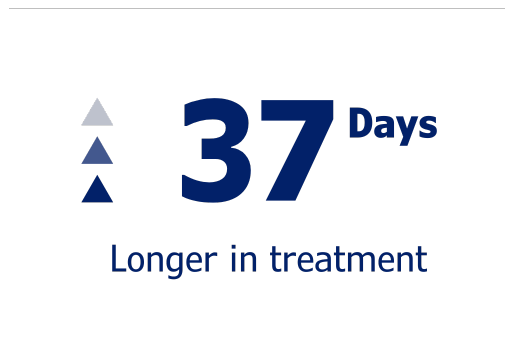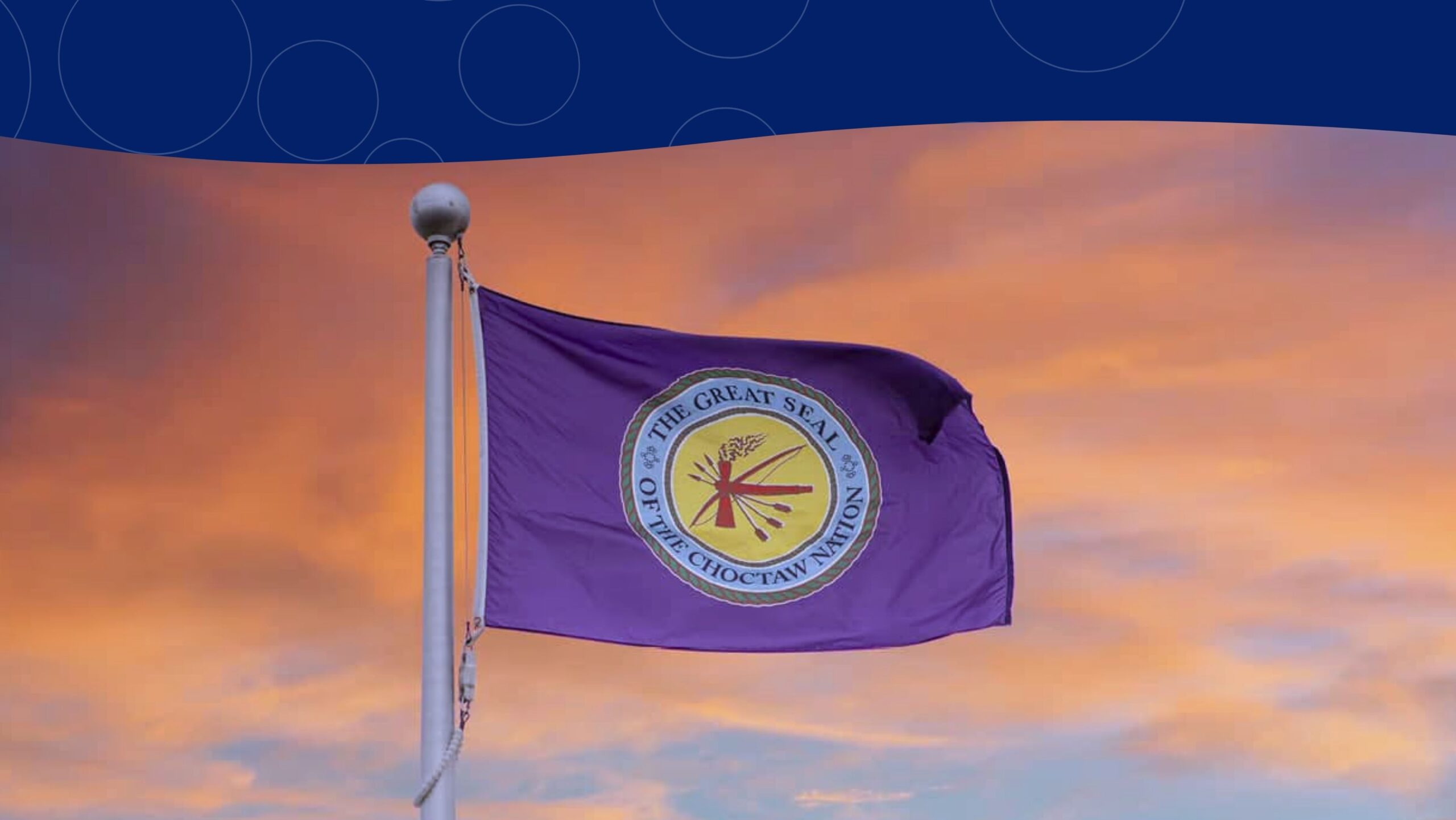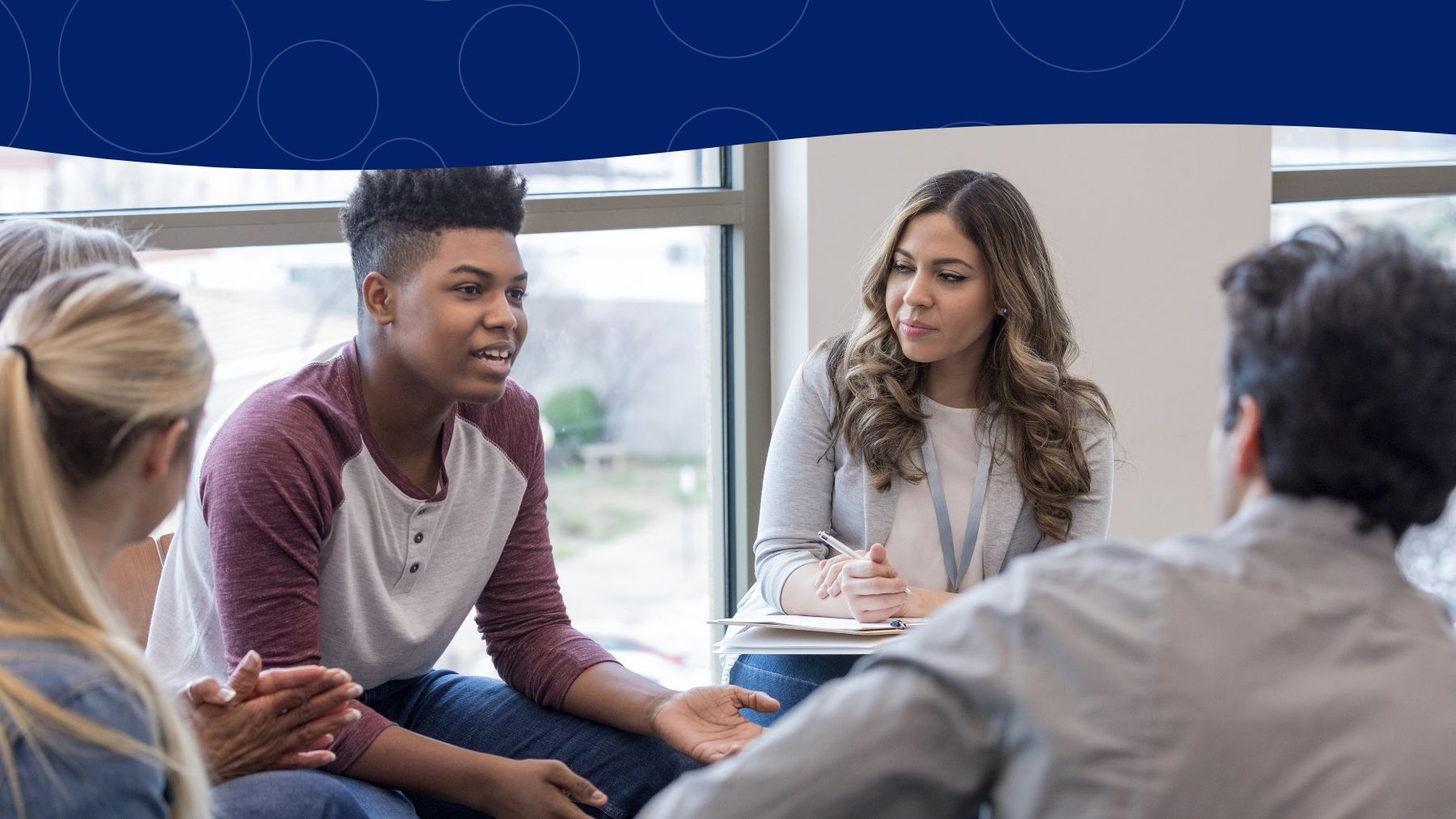Evidence.
The effectiveness of CHESS Health solutions is backed by a robust body of evidence, including published research, customer case studies, and successful implementation results.
CHESS Health delivers evidence-based solutions that enable our partners to reduce the personal and societal crisis of substance use disorder (SUD). Taking an evidence-based approach means science and research are at the core of our solutions to ensure effective results and improve outcomes for the nearly 49 million people affected by SUD nationwide.
Our proven, trusted solutions for partners in the public sector, behavioral health providers, and payers and health plans are validated by clinical trials, research, and case studies from existing customers. Studies highlighting the effectiveness of CHESS Health’s solutions have been published by the Journal of the American Medical Association, the Journal of Substance Abuse Treatment, and the Journal of Dual Diagnosis, among others. Funding for research has come from the Substance Abuse and Mental Health Services Administration (SAMHSA), the National Institutes of Health (NIH), the National Institute on Drug Abuse (NIDA), the National Institute on Alcohol Abuse and Alcoholism, and the Addiction Policy Forum. CHESS Health has conducted collaborative research with partners, including the Oklahoma Department of Mental Health and Substance Abuse Services, and the Loyola Recovery Foundation.
CHESS Health solution participants showed increased adherence, accessing more services, completing IOP treatment 20% more, and reducing early OP treatment dropout by 30%
Source: Jack, Joseph, and Morton Mandel School of Applied Social Sciences at Case Western Reserve University
Individuals using the app reported a reduction in key relapse risk factors and an improvement in protective factors including sleep, reduced isolation, confidence in their recovery/abstinence, and increased time around supportive people.
Source: Addiction Policy Forum Case Study of Marietta Municipal Court
Integration of automated contingency management resulted in a 70% increase in program completion rate.
Source: Optimizing Treatment Adherence with Rewards; GRAND Tulsa Case Study
At 4-, 8-, and 12-month check-ins, there was a 30% higher rate of abstinence by those using the Connections app compared to those not using the app.
Source: University of Wisconsin-Madison study published in JAMA Psychiatry
Decrease in readmission rates, which results in a lower cost of care, for patients using the mobile health app.
Source: Loyola Research/ Pharmacotherapy model integrated with mobile health technology

Patients using the Connections app stayed in treatment 37 days longer than those not using the recovery support app.
Source: Oklahoma Department of Mental Health and Substance Abuse Services Study
Persistent high engagement rates observed from the initial week following treatment through the four-month post-treatment period serve as a compelling indicator of the digital health tool’s effectiveness.
Source: Journal of Dual Diagnosis
Individuals using the Connections app had a 24% lower rate of return to residential care, which can be directly related to a decrease in the cost of care.
Source: Oklahoma Department of Mental Health and Substance Abuse Services Study

A non-profit organization increased their documented referral closure rate by over 76% resulting in improved client care and increased operational efficiency.
Source: Utilizing Digital Solutions to Maximize Client Care; FLACRA Case Study
Peer-reviewed Journal Articles Featuring CHESS Health Technology
Oklahoma Study Shows Positive Outcomes with Outpatient App
Pharmacotherapy and Mobile Health for Veterans with Substance Use Disorders
App Usage Increases Treatment Compliance and Sessions for Women in Appalachia
CHESS Health Case Studies
CHESS Health Implementation Results and White Papers
Want to
learn more?
Get in touch with us to hear more about how we can help your organization.
For more information, please read our Financial Conflict of Interest Policy.






